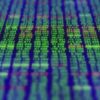

Former Biden national security official Anne Neuberger said Wednesday that she is not confident in U.S. critical infrastructure being safe from cyberattacks, a harrowing message delivered at the AI Expo for National Competitiveness — run by the Special Competitive Studies Project — that centered, in part, on the evolving technology and its use cases in national security.
“Today in the United States, I do not have confidence that any part of our infrastructure couldn’t be brought down in a cyberattack,” said Neuberger, who served as deputy national security advisor for cybersecurity and emerging technology.
“There’s reasons for that,” she added. “There’s old tech, there’s tech that wasn’t built to be connected to the internet to be accessible, and there’s still less cybersecurity for operational systems than there are for IT systems.”
She said AI can be used to better evaluate and test flaws in legacy infrastructure platforms to better unravel where patches are needed. One method is using AI to create a “digital twin” of an infrastructure system to probe where flaws need to be fixed.
Neuberger, now a Payne Distinguished Lecturer at Stanford University, said U.S. allies and partners also need to maintain investments in their technological edge so that AI tools can be integrated into their own intelligence uses.
That allied intelligence-sharing dynamic is already crucial, she said. There were multiple cases during her time at the White House, for instance, where intelligence from Israel provided insights about threats to the United States, including those targeting elections and other domestic terror threats, she said without elaborating due to the classified nature of the details.
And, in Asia, she said the U.S. built an intelligence partnership with South Korea and Japan to investigate cryptocurrency supply chains, particularly North Korea’s crypto pilfering schemes used to fund its missile programs.
Asked about ongoing cuts across the federal government affecting both core cyber offices and the intelligence community, Neuberger said it’s “never a good time to lose talented cyber defenders,” especially given today’s sophisticated cyber adversaries like China and Russia. But she sees an opportunity to use AI to reorient U.S. cyber defenses.
“To your point, it’s never good to lose talent,” she said. “I do think it’s an opportunity to say, given AI, let’s approach national cyberdefense differently with a more targeted approach, using AI to close the holes in the most critical infrastructure” before adversaries get further inside.




